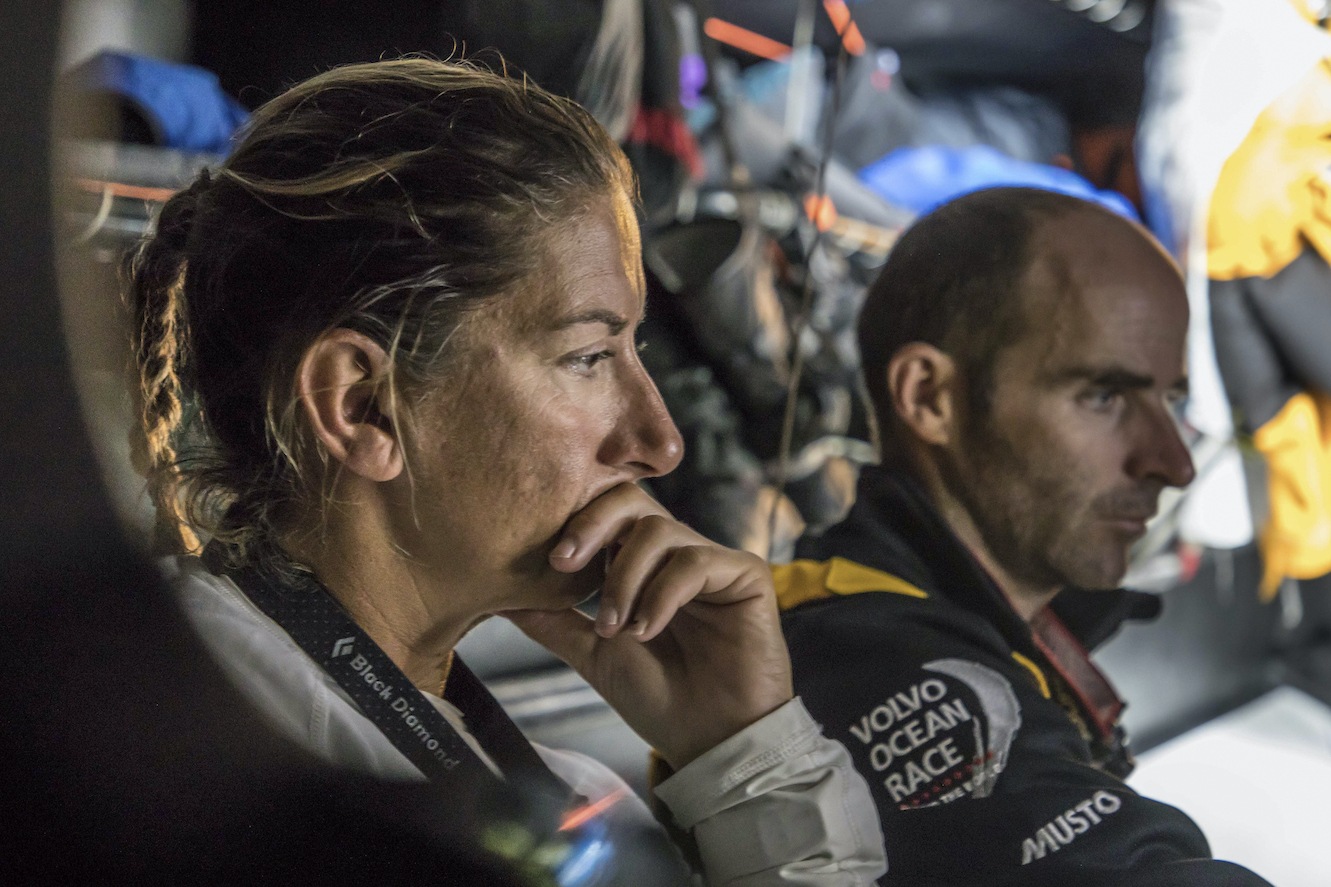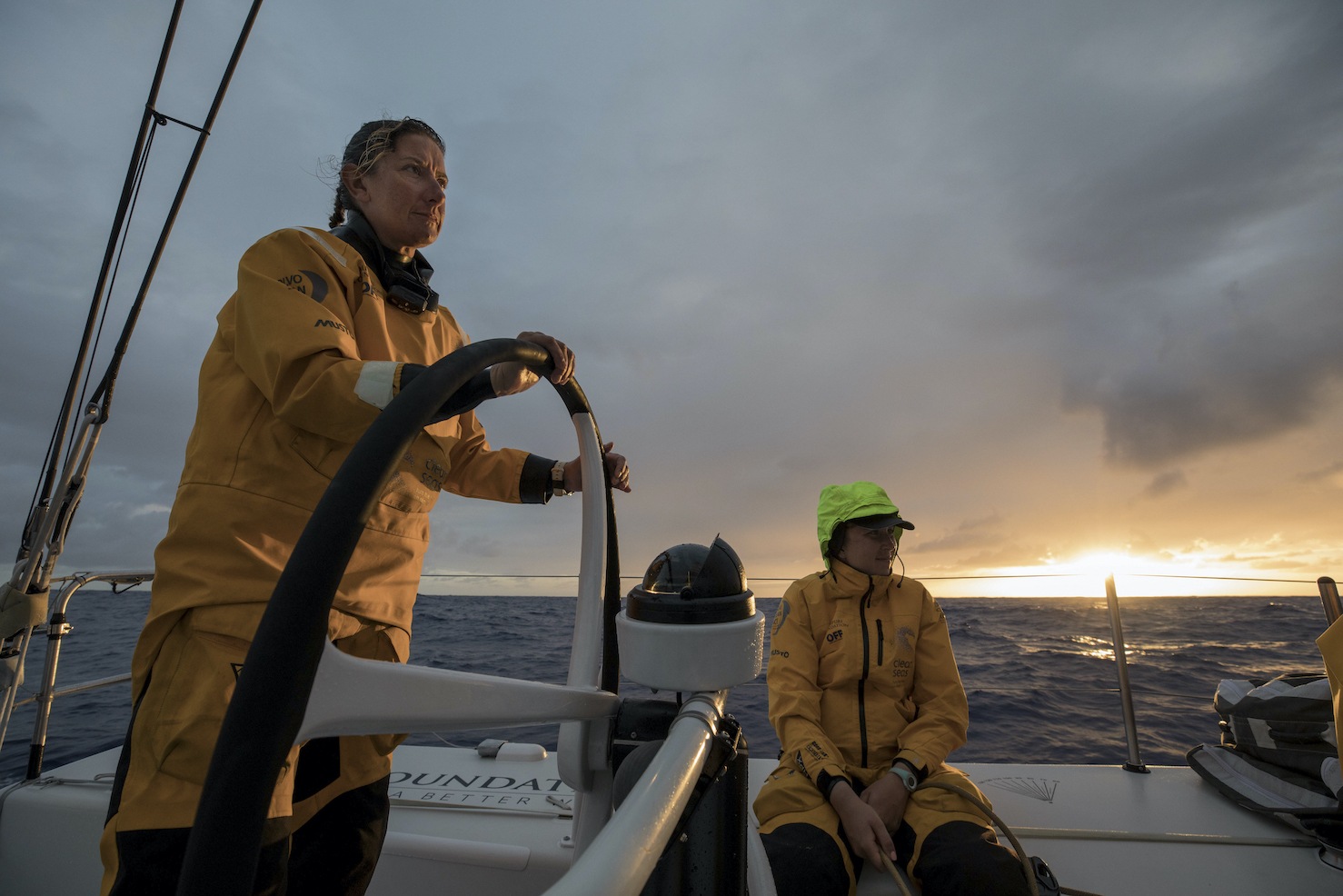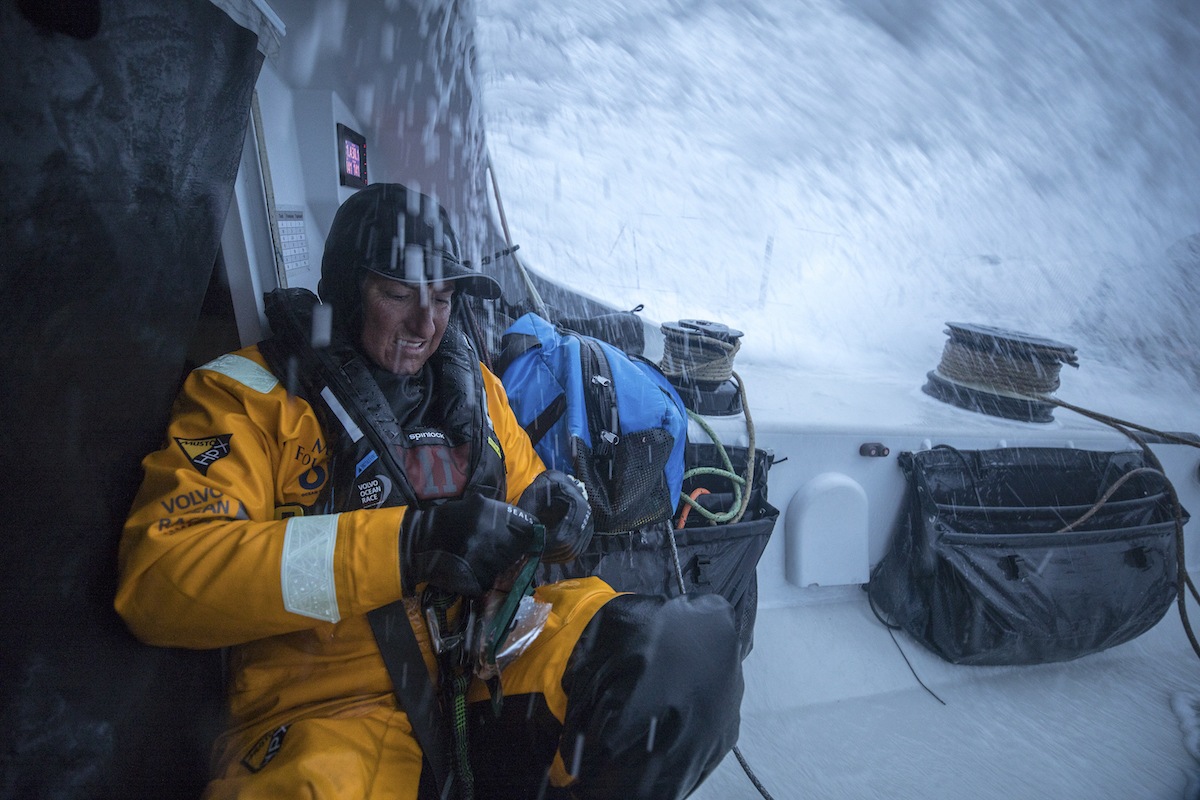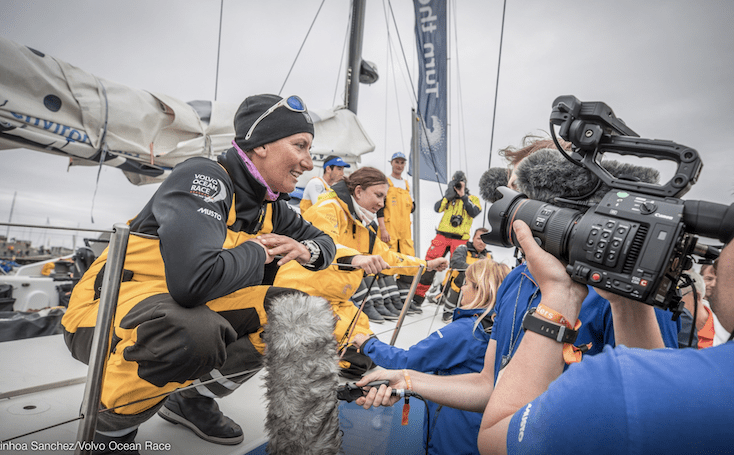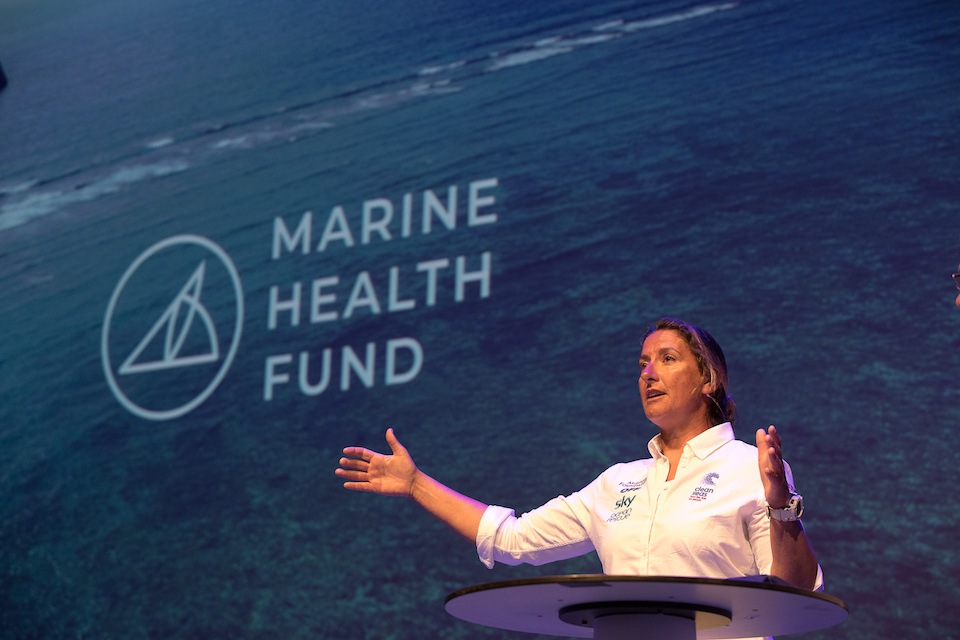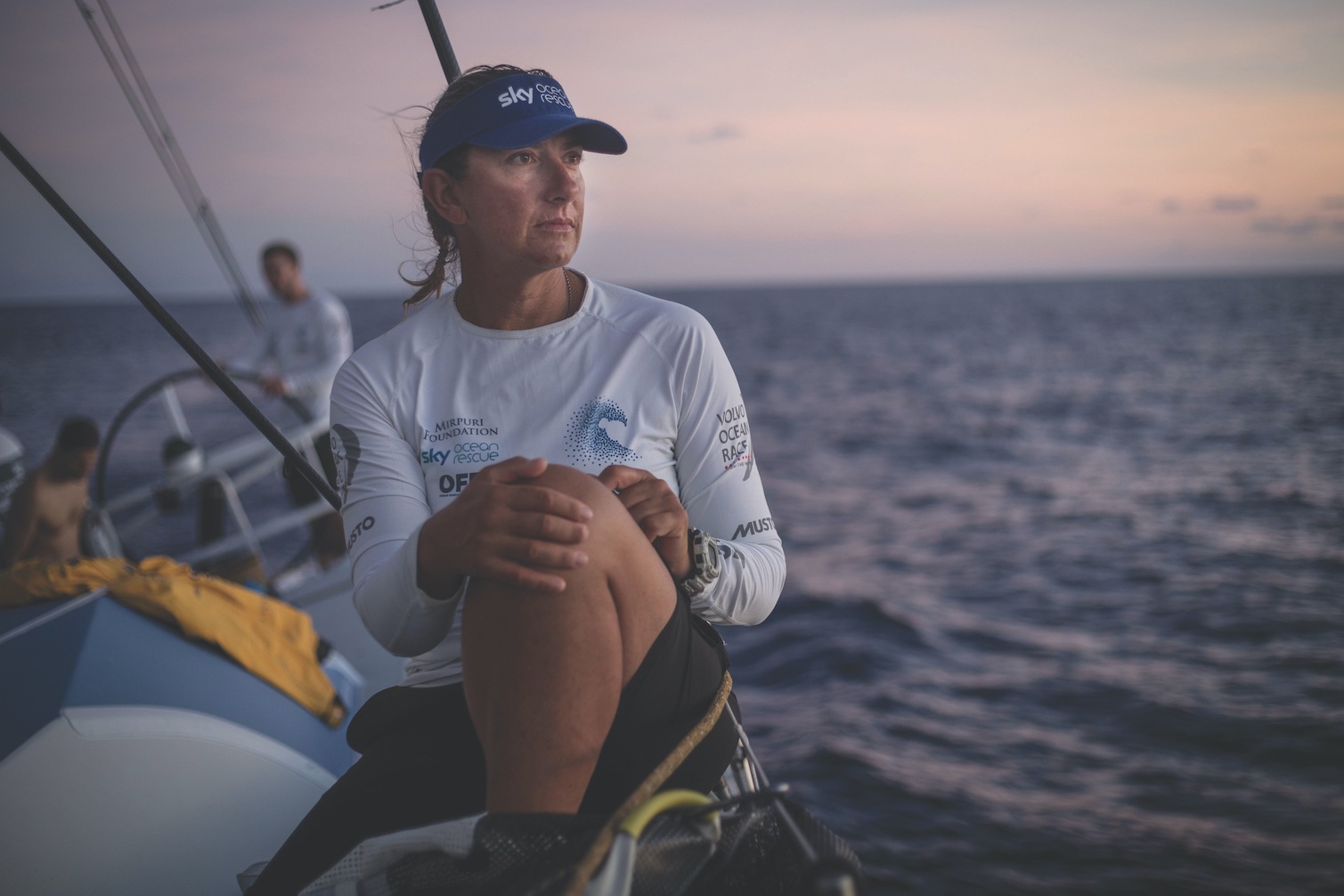Developing resilience
Dee Caffari recently spoke with Sails from her home in Titchfield, Hampshire, about what she’s learnt about overcoming adversity.
Written by Scott Alle
28 April 2020
Advertisement
Dee Caffari knows a bit about battling the odds and finding inner strength.
In 2006 she became the first woman to sail single-handedly and non-stop around the world “the wrong way”; westward against the prevailing winds and currents.
So far, she has six circumnavigations to her credit, the most recent being the 2017/18 Volvo Ocean Race. As the skipper of Turn the Tide on Plastic she guided a predominantly young rookie crew through the pitfalls and dangers across the world’s oceans, including the notorious Southern Ocean.
As we do this interview, we are in the midst of the COVID-19 pandemic what are your thoughts about what’s happening?
It is certainly strange times we are living in at the moment and sadly I think this will go on for longer than any of us care to admit before we start to relax the isolating rules and life returns to the new normal, whatever that may look like.
Advertisement
People have never experienced something like this before and they don’t know how to react. Everyone is in a state of flux; you can’t buy stuff in the supermarkets, people’s businesses are closing. It’s unprecedented in our lifetimes.
I do feel its Mother Nature pressing the reset the button and making us take stock and readdress our lives.
What makes you say that? What brings you to that conclusion?
We have to address some of the [environmental] issues we’ve been ignoring up until now.
One positive to come out of a global pandemic is the environment is loving the fact there’s a severe cutback of airline flights, and general travel. The air quality is improving, and our emissions are reducing and I think it’s a case when we come out the other side it’s going to be different. And if we don’t come out of this differently then a second wave is going to come. It’s almost as if change is being made to happen.
Interesting. I suspect that’s an underlying feeling many people have. And of course there’s no better place to self-isolate than a boat providing it doesn’t contravene social distancing rules?
I wish I was sailing now. It would be the perfect place as you would be fairly oblivious to the actual impact this is having while you’re out there. Those who are sailing and those who have boats should think of it as the perfect self-isolation.
I guess we are all trying to reconcile or find a way to still enjoy our sport with so many sailing events cancelled?
There is confusion when words like “isolation” are used, and events are cancelled but we can still get outdoors and do what we love. We just have to be a bit smarter the way we do it. There’s nothing quite as invigorating as harnessing the power of nature in a Laser, or a stand-up paddleboard. There’s every reason to get on the water and make the most of it. There are of course caveats, you probably can’t do it with ten of your mates and celebrate in the yacht club afterwards. The pick-up in dinghy sailing could go off.
Do you think the lessons learnt and qualities developed through sailing make us as sailors more resilient in these situations?
I think absolutely. We live with finite resources, we have to closely manage our requirements and our needs, be it showers or other everyday living activities that people take for granted. We live as much as we can with nature, harnessing her power. I think we are very adaptable and are used to facing challenges so therefore are less prone to panic.
What have you learnt about overcoming adversity?
I can categorically confirm that the bad stuff never lasts forever. It will pass and you need to be fit, rested, and ready to push hard again when the opportunity arises. This is important when facing a storm in the Southern Ocean and you are balancing the pushing hard and keeping the boat and yourself or the team in one piece. When the conditions start to abate, the secret is to shake out the reefs early and get back up to speed again.
If we translate that to everyday life, we face challenges and hardships on a regular basis. Setbacks teach us to be adaptable and flexible in our approach to plans so we can continue in our goals and objectives. Plan A might not be possible anymore but that allows us to use Plan B or Plan C if need be. Having an open mind helps us to approach the adversity in a calm manner rather than panic and stress.
The other lesson I have learnt is to not be afraid to ask for help. There are many experienced people within your network that can mentor or support you if you reach out and ask. This will allow you to feel empowered with a purpose and a strategy rather than overwhelmed and despondent. You are never alone, even in the depths of the Southern Ocean there are people ready to support you remotely.
The photo of you clipping on getting ready to go on watch deep in the Southern Ocean on leg 7 of the last Volvo Ocean Race speaks to that determination and resolve. How do you put that leg in context now?
I genuinely absolutely love what I do and I feel privileged to spend the amount of time I do at sea. The Southern Ocean legs are everything for me and I was very aware with a very young crew who had never been in the Southern Ocean most of them, that it comes from the top. So, if I was to come out with fear and dread on my face it would resonate amongst the crew. So, I came out on deck saying ‘Yeah this brilliant, isn’t this the best sailing you could possibly do? Yes it’s a bit cold, but look at this, it’s just amazing,’ and loving it and it was contagious. They thought if she’s smiling, we can smile. That leg from Auckland to Itajai was probably my favourite leg, but obviously juxtaposed against the loss of John Fisher on Scallywag the worse leg too.
When the news about Fish came across the radio or on the satphone there must have been some very tough moments?
Definitely, and for me it was how do it tell my crew? How do I explain to them when they are on the same water on the same boat doing the same thing? We had trained very closely as two crews, including our sea-survival training so the two boats were very close. It was very hard, very emotional for all of us but what it did do was readjust their safety switch, and they were much more conscious of each other. But there was utter relief when we went around Cape Horn, I had tears to see them celebrate something so special; and that I’d got them through the Southern Ocean.
Are you talking the Ocean Race organisers about the next edition in 2021?
It’s always in the back of my mind. I like what they are trying to do by giving people opportunities and adapting the rules to help facilitate change. I’ve had first-hand experience of that – the [gender] mixed crew, a young crew, and showed that it could work. I finished a race with a group people that were very different from the people we started with and see them grow over that time made me a proud Mum, almost.
As far as the next edition goes it’s difficult to say. Finding sponsorship in the current climate for something like that will be challenge. If I’m not sailing then managing or helping or passing on the knowledge I have and supporting someone else will be my second choice. But I genuinely love being out there. Maybe they’ll just bring me in for that Southern Ocean leg.
What about the rest of the year for you now in terms of sailing commitments? I know you are in demand as a corporate and motivational speaker.
There has been a lot of cancellations of my public speaking dates. Sailing wise my focus will be on the mixed double-handed offshore keelboat [for Paris 2024], but one of the selections in the UK was going to be a RORC race in August.
My thought this year was to be racing in this growing class and see how I get on. There is the added incentive of a team to represent GBR in the Offshore Worlds this year in Malta, but in the current global pandemic situation we face my racing plans have been put on hold. With the uncertainty of events even taking place it is tricky for boat owners to invest, therefore I am unsure of my involvement, but I am keen to be part of this in the future and see if I can transfer my skills to be competitive.
Ed’s note: In 2018 Dee was invited to Chair the World Sailing Trust, a new global charity that promotes the health of oceans and grows participation of the sport to protect its future.
Advertisement
Advertisement
Advertisement


